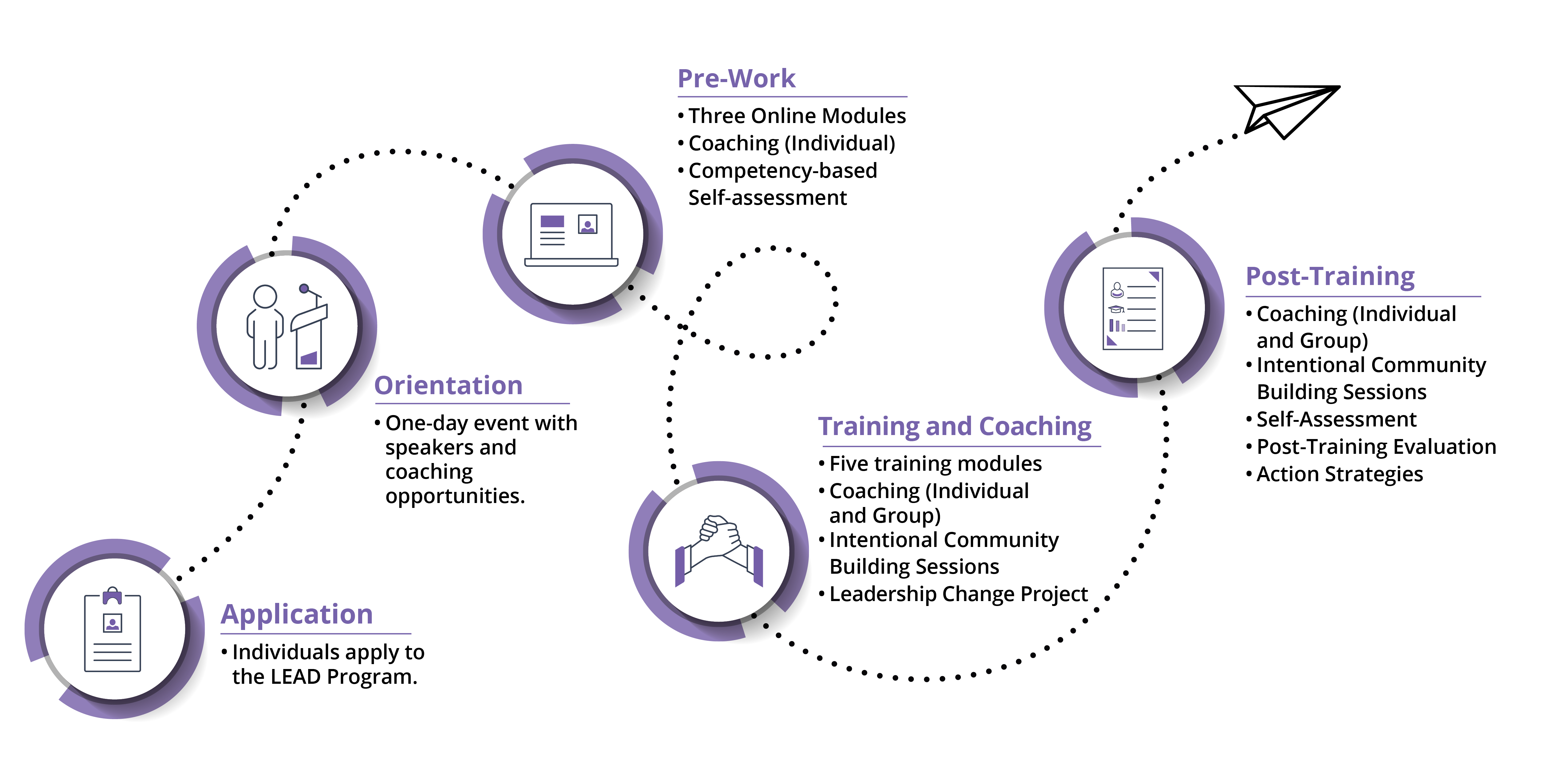
Leading and Exploring Through Accountability and Development (LEAD) is a transformative program that recognizes the power of collective intelligence in driving change. By tapping into the experience of child welfare and youth justice leaders, this evidence-informed training builds on existing leadership knowledge and skills through a structured framework of competencies.
Who Should Attend?
Highly motivated ACS and provider agency leaders who ideally have four years of supervisory or managerial experience and currently:
- Lead a program or multi-disciplinary team.
- Ensure program compliance with agency policies, mission, and strategic priorities.
- Cultivate a productive work environment that supports psychological and physical safety.
- Encourage innovation and creativity for quality practice.
- Promote equity, anti-racism, diversity, and inclusion.
- Develop strategic partnerships with city agencies, provider agencies, community partners, advocates, and families.
Why Choose Our Program?
The LEAD program ignites lasting change through knowledge, collaboration, and purposeful action. The program takes an innovative approach to leadership by integrating the National Child Welfare Workforce Institute’s evidence-informed leadership training with Coaching, Intentional Community Building Sessions, and Change Projects to improve systems. The Intentional Community Building sessions create partnerships among leaders to advance collaboration, unpack systemic oppression, promote social justice, and foster a safety culture. Participants work together on Change Projects that contribute to meaningful transformation for individuals and systems to better serve children, youth, families and communities.
Key Benefits:
- Strengthen leadership knowledge, skills, and abilities.
- Join a community of leadership change agents.
- Learn to cultivate a trauma-informed and psychologically safe environment that advances race equity, inclusion, and social justice to promote the well-being of the workforce.
- Opportunity to create system, organizational, and community change.



